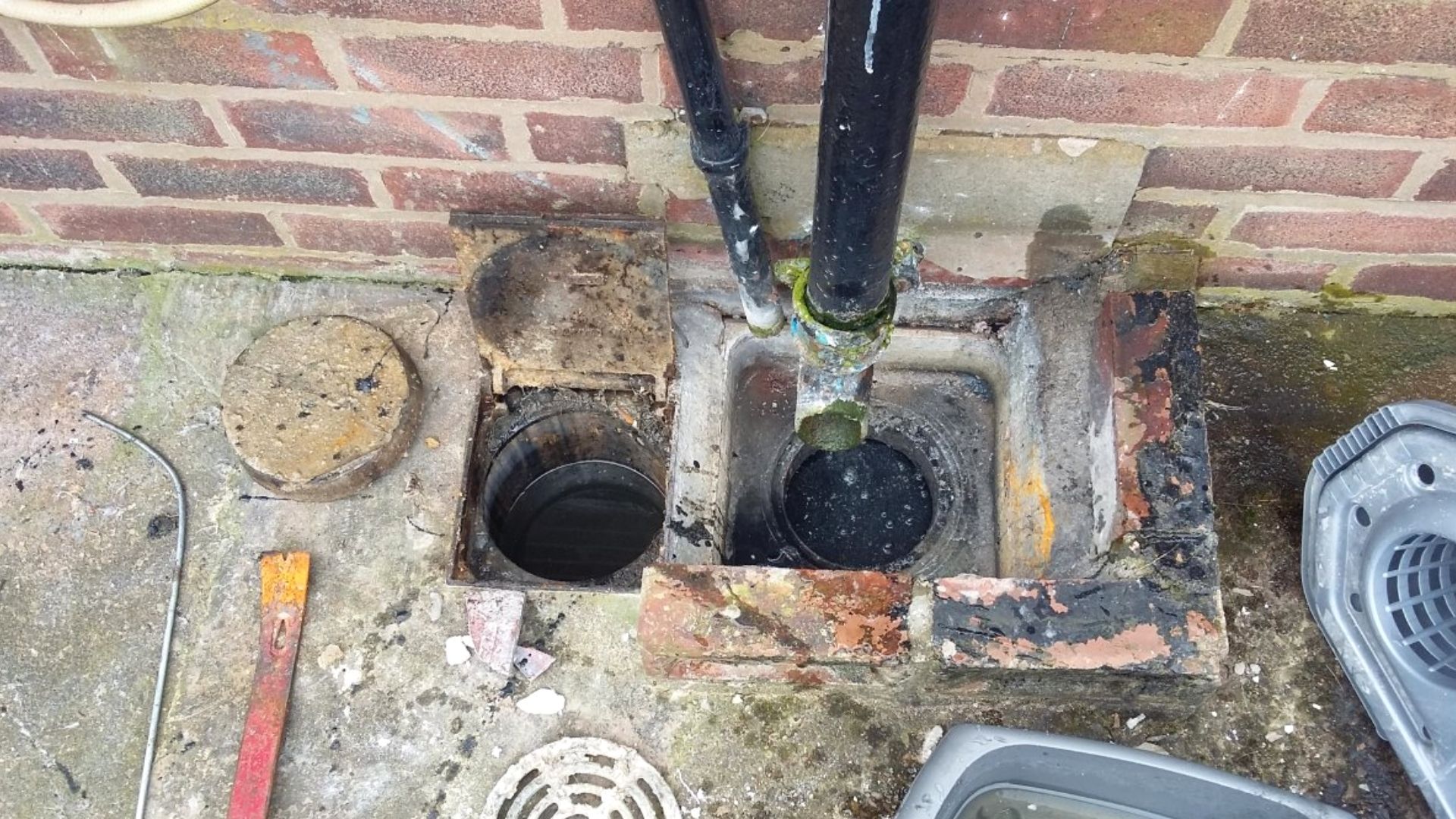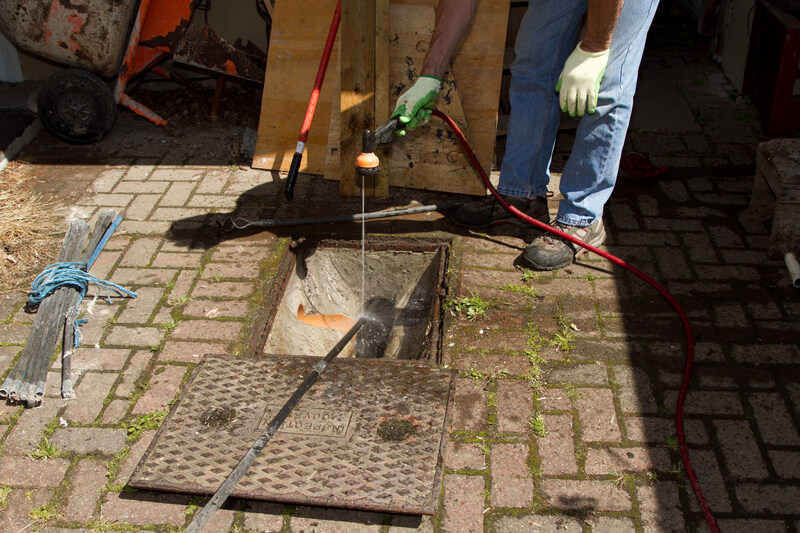Ways to Handle a Blocked Drain Prior to Reaching out to Professional Plumbers
Ways to Handle a Blocked Drain Prior to Reaching out to Professional Plumbers
Blog Article
Presented here in the next paragraphs you can find some good quality help and advice on the subject of How to handle a clogged drain in your home.

Intro
Handling an obstructed drainpipe can be an aggravating experience, interrupting everyday tasks and possibly causing damages to your residential or commercial property. Nonetheless, prior to connecting to plumbing professionals, there are steps you can require to address the issue on your own. In this guide, we'll explore do it yourself options and preventive measures to tackle an obstructed drainpipe effectively.
Determining the Problem
The primary step in dealing with an obstructed drainpipe is recognizing the indicators. Slow-moving water drainage, gurgling noises, foul odors rising from drains pipes, or water backing up are common indications of an obstructed drain. Determining these indicators early can help stop further problems.
Selecting the Right Pipes Solution
When picking a pipes solution, consider elements such as experience, licensing, and client evaluations. Select a credible plumbing technician with a performance history of top quality craftsmanship and transparent rates techniques.
Cost Considerations
The cost of specialist drain cleaning company can vary depending upon the extent of the obstruction and the plumbing's prices. Request quotes from multiple service providers and inquire about any type of added fees to make sure openness and prevent shocks.
Safety and security Measures
When trying do it yourself drainpipe cleaning, prioritize security. Put on safety handwear covers and eyewear to avoid contact with dangerous chemicals or microorganisms. Never ever blend different drain cleaning items, as this can generate unsafe fumes.
Case Studies
Real-life instances illustrate the effectiveness of do it yourself solutions and the relevance of timely professional treatment in solving drain obstructions.
Common Causes of Obstructed Drains
Understanding the variables that contribute to drain obstructions is crucial for effective resolution. Common culprits consist of hair, soap scum, grease, food particles, and international objects like hygienic products or paper towels. Tree origins invading below ground pipelines can additionally create considerable clogs.
DIY Solutions
For small blockages, several do it yourself solutions can be efficient. Pouring boiling thin down the drainpipe can help liquify grease and debris. Sodium bicarbonate and vinegar or a combination of salt and cooking soft drink can act as all-natural cleansers. Making use of a plunger or pipes snake to remove obstructions is another choice.
Devices and Devices
Having the right devices available can make DIY drainpipe cleaning up extra reliable. A plunger is a versatile device for getting rid of clogs in sinks, bathrooms, and showers. A plumbing serpent or auger can get to much deeper obstructions, while drainpipe cleaning chemicals can be made use of very carefully for stubborn clogs.
Safety nets
To prevent future obstructions, embracing preventive measures is important. Mount drain guards or strainers to capture hair and debris prior to they get in the pipelines. Regularly flush drains with hot water to dissolve grease buildup, and avoid dealing with grease or strong waste down the tubes.
When to Call a Professional
While do it yourself options can solve minor blockages, certain indications suggest the requirement for specialist support. Consistent obstructions, foul odors in spite of cleaning initiatives, or several drains backing up all at once are warnings that necessitate experienced intervention.
Conclusion
By following the suggestions laid out in this overview, you can efficiently tackle blocked drains pipes and prevent future pipes concerns. Whether choosing DIY remedies or seeking expert help, punctual action is key to preserving a healthy pipes system and maintaining the integrity of your home.
How to Clear a Clogged Drain Yourself (And When to Call In the Professionals)
What Can Clog a Drain
Dirt Skin flakes Hair Grease Soap scum Food Offset pipes Tree roots Small objects Mineral buildup DIY Tricks to Unclog a Drain
You can fix this! Once you have identified the source of the clog (or have a vague idea), you can try one or a combination of these fixes in order to clear your plumbing.
Wire Hanger or Snake
Untangle and clear out hair from a drainpipe with a homemade snake. Use a straightened-out wire hanger with a 90-degree angle hook to locate the clog and drag out any unwanted material.
Remember not to push the clog further down to where the wire hanger cannot reach! If you need to follow up with a plunger, give it a try. Your efforts might be more successful after it’s been wire-snaked.
If you want to get fancy and don’t have a wire hanger to spare, head to the store and pick up a hand-operated drain snake. You can get one for $10-$30. It may save you the hassle, and provide additional length to reach deep into the clogged pipe.
Plunger
A cup plunger has a suction cup attached to a wooden handle. The rubber creates a seal around the drain, and increases the pressure force of the plunger.
Plunge for 30-second increments to loosen the clog. This may need to be repeated over the course of 15-20 minutes. Once plunged, run the water to flush the remaining material out of the drain.
Remember– never use a plunger if you have used a chemical drain cleaner. These chemicals can splash up from the force of the plunger and cause serious injury or burns.
Boiling Water
Hot water can sometimes break up materials into a flushable amount. Dirt, grease, and soap buildup requires heat in order to unstick from surfaces.
Take your kitchen kettle and heat your water to a boil. Once it reaches a rolling boil, pour it directly down the drain into the blockage. Carefully follow with plunging, if necessary.
Don’t worry if this takes more than one try! It can often take multiple kettles and repeated plunging in order to clear a particularly stubborn clog.
Chemical Drain Cleaner
As a last resort, pick up a bottle of chemical drain cleaner. Drain-cleaning chemicals are potent, and not very good for the environment.
You may need to wear protective eyewear in gloves before handling your bottle of chemical drain cleaner. Follow the instructions printed on the bottle, and flush with water as soon as the instructions allow. Do not follow with plunging.
Baking Soda and Vinegar
As a safer alternative to chemical drain cleaner, baking soda and vinegar can create a chemical reaction that clears tough clogs.
Combine one cup of cleaning vinegar with one cup of boiling water, and set aside. Once you have done this, pour half a cup of baking soda down the drain. Give the baking thirty seconds to settle and cover a large portion of the problem drain.
Following the baking soda, pour down your vinegar and hot water solution. Once the vinegar and baking soda combine, the mixture will bubble and fix. Let this reaction fizzle in the drain for about an hour.
After an hour, follow with a kettle’s worth of hot water. The heat and liquid should flush out any remaining material.
When to Call a Plumber
If your DIY attempts haven’t cleared your clog drain, it’s time to call in a professional. It’s not worth losing access to your kitchen sink or high-traffic bathroom. A clog in a vital area can keep you from the things you’d rather be doing, and derail your routine.
Anytime a clog is causing water to spread is a time to call in a plumbing service. What starts out as a little bit of water can quickly grow into serious, expensive water damage.
Additionally, a serious clog can result in burst pipes or serious leaks. Make sure you know when to take it seriously!
https://myguysnow.com/how-to-clear-a-clogged-drain-yourself-and-when-to-call-in-the-professionals/

Do you enjoy reading about Tips for Dealing with Clogged Drains and Sewer Lines? Post feedback further down. We will be delighted to listen to your responses about this article. Hoping that you come back again in the near future. Sharing is good. Helping people is fun. I love reading our article about What I learned from trying to deal with a clogged drain.
At This Website Report this page